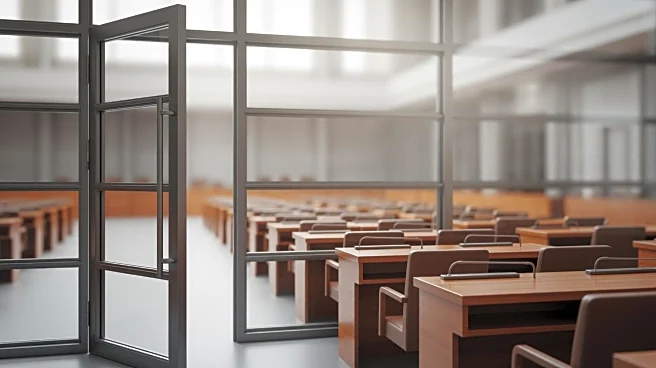What's Happening?
NPR has publicly rejected a new press policy issued by the Pentagon, which requires pre-approval of military-related reporting by the Administration. NPR Editor in Chief Thomas Evans stated that the organization will not comply with the policy, as it undermines the independence and objectivity of journalism. The policy, announced on September 19, grants the Administration the authority to determine what can be reported about military actions, potentially limiting the public's access to unbiased information. NPR emphasizes the importance of a free press in providing trustworthy journalism and urges the Pentagon and the Administration to respect the American people's right to know what is done in their name.
Why It's Important?
The rejection of the Pentagon's press policy by NPR highlights a significant concern regarding press freedom in the United States. If media organizations are required to obtain approval from the government before reporting on military matters, it could lead to censorship and a lack of transparency. This situation poses a threat to democratic principles, as a free press is essential for holding government accountable and ensuring informed public discourse. The policy could impact how military actions are perceived by the public, potentially skewing public opinion based on selective information. NPR's stance underscores the ongoing debate about the balance between national security and press freedom.
What's Next?
The Pentagon's press policy may face further scrutiny and opposition from other media organizations and civil rights groups. There could be legal challenges aimed at overturning the policy, citing violations of the First Amendment rights. The Administration might need to address these concerns and possibly revise the policy to accommodate the principles of free journalism. Additionally, public and political pressure could influence the Pentagon to reconsider its approach to media relations, ensuring that the press can operate without undue restrictions.
Beyond the Headlines
This development raises broader questions about the role of media in a democratic society and the potential consequences of government control over information dissemination. It could lead to discussions about the ethical responsibilities of journalists and the importance of maintaining editorial independence. The situation also highlights the need for vigilance in protecting press freedoms, especially in contexts involving national security, where the stakes are high and the potential for abuse of power exists.








